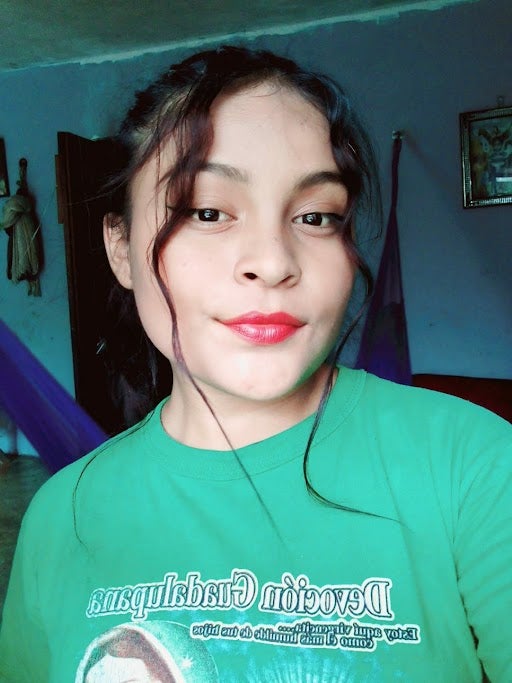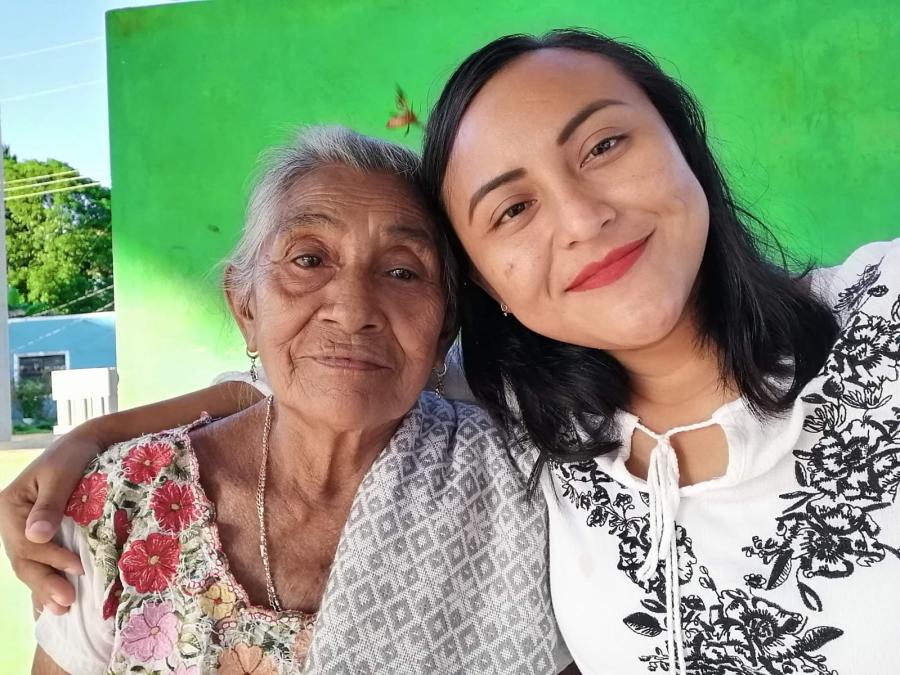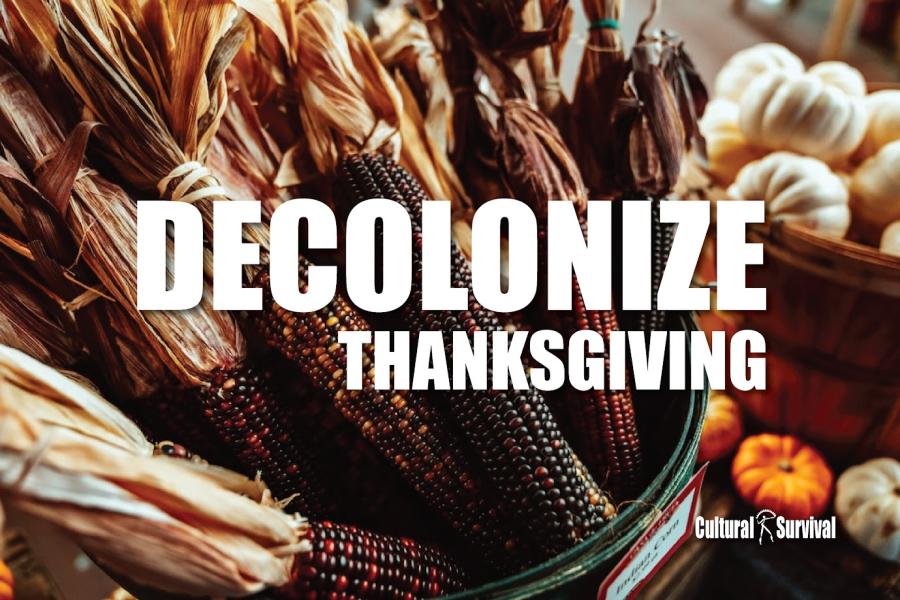
By Nati Garcia (Maya Mam, CS Staff)
In 2014, the United Nations General Assembly declared July 15 as World Youth Skills Day to highlight the importance of equipping young people with skills for employment and entrepreneurship. World Youth Skills Day 2022 takes place amid concerted efforts towards socio-economic recovery from the COVID-19 pandemic that are interconnected with the challenges of climate change, violent conflict, persisting poverty, rising inequality, rapid technological change, demographic transition, and others. Indigenous youth are often excluded when it comes to celebrating their abilities and skills, while the consequences of colonialism and conflicts in their territories present additional obstacles. The pandemic has further accelerated uncertainty for their futures.
At Cultural Survival, for the last five years we have been supporting individuals and groups of youth in building communication and technical skills in radio along with audiovisual and print media through our Indigenous Community Media Youth Fellowship. Fellowships have allowed youth to build capacities in Indigenous rights, Indigenous languages, cultures, and Traditional Knowledge. Through a one-to-one mentoring strategy, Cultural Survival accompanies youth from the start to the completion of their projects. Since 2018, we have awarded 58 fellowships to Indigenous youth. There is an enormous potential for youth to develop knowledge and leadership skills to revitalize their languages, cultures, lands, and livelihoods, and we are moving forward to include these topics in youth fellowships.
We believe it is crucial to listen and respond to the self-determined needs of the communities in order to provide support that is sustainable, and most importantly, pertinent to the needs of the community. Indigenous youth are the future of their communities, and developing youth leadership is an integral part of ensuring communities’ well being. Here we share reflections from our fellows on the importance of Indigenous youth receiving opportunities to strengthen their skills in ways that allow them to participate actively in their communities.
Arnab Chaudhary (Tharu), 22, is from Gadhawa Village in the Dang district of Nepal. Currently in his final year of law school, Chaudhary is an executive member of Kathamandur Valley Committee of the Tharu Student Society where he engages with his peers in social, legal, political, and economic issues related to Indigenous communities. He received a fellowship in 2020 for a project entitled “Vanishing Language of Kusunda People,” in which he produced a radio program series about the Kusunda Peoples that focused on promoting and strengthening the Kusunda language and culture. Chaudhary is passionate about writing and public speaking, and has received tremendous support from his family, friends, and mentors in strengthening his passion. He currently works with ProPublic, an organization that works on advocacy of culture, environmental justice, and social justice. He speaks five languages (Tharu, Nepali, Hindi, English, and Awadhi) and has received training opportunities in further developing his writing and leadership skills.
From his experience, he shares the importance in developing Indigenous youth skills: “In my community, many people cannot put [into words] their ideas or issues that they are thinking [about]. If there are more training spaces for Indigenous youth, they can share their ideas, they can [become] more capable. Training spaces also provide them networking and friends, and they can get different people’s perspectives from different backgrounds. These types of spaces provide diversified ideas. I think I can give only one message to Indigenous youth around the world: always grab the opportunity. Do not leave any types of opportunities; grab that opportunity immediately.”
Lorena Jamioy Tisoy (Inga-Kamëntsá), 24, is from Sibundoy Putumayo, Colombia. She is an artisan, mother, community leader, and coordinator of the organization Auaspa Iuiakuna (Indigenous Women Weaving Memories). She is an architect by profession, having graduated from the National University of Colombia. She has developed several cultural and community processes through the formulation and execution of projects for the survival and strengthening of cultures.
Tisoy was awarded a fellowship in 2020 for her project entitled “Jajetsam Bëngbe Juabnac” (Weaving the Thought of Our Elders), which focused on strengthening ancestral knowledge and history through storytelling in promoting the Kamëntsá culture. She also received a Keepers of the Earth Fund Grant for her “Sacred Experiences” project, which focused on the chagra as a space for strengthening and preserving the territory. She is also currently part of a think tank for the construction of a livelihood plan for a community process for social and cultural self-recognition with the Cabildo Cancha Inga of the municipality of San Francisco.
Tisoy has always focused on strengthening her skills and those of the women in the Auaspa Iuiakuna, making their rights and role within their homes and the community visible. She seeks to develop skills and abilities from the community and her profession to contribute to the collective process in her territory. “I really like to learn and receive training. I have received so much training from the academy since I started my studies. Whenever there is a course, training, or a diploma. I like to do it because through academic training I have seen that one can contribute more. Through trainings, we improve our skills and knowledge. My contribution [to my community] is to replicate [my training] and help other people [become] agents of change, and in this way, contribute to the processes that are being developed in the territory. I believe that we as Indigenous people can contribute more. We have many skills that are yet to be discovered and knowledge that is yet to be acquired, but we can also provide all this knowledge through training, and thus together take actions to transform the territories in a positive way and in accordance with culture, art, and education.”
Indigenous Women Circle of Words (Pijao, Embera, Inga, Pastos) from Colombia is made up of Indigenous women who are university students from different institutions in Bogotá, Colombia. The organization formed through the Martin Luther King leadership program of the United States embassy and was awarded an Indigenous Community Media fellowship in 2021 for their project entitled “Voices of Our Land.” This project shares the stories of five Indigenous communities, the Inga, Pijao, Pastos, Muisca, and Embera Peoples, through multimedia reaching local, national, and international audiences. The podcasts and audiovisual productions highlight Indigenous worldviews and Traditional Knowledge and customs, inspiring youth, children, and adults to be proud of their cultural roots.
The Martin Luther King Leadership Scholarship helped the women develop their English language skills and gave them the opportunity for cultural enrichment through exchanges and dialogues among members. There was a desire to continue these relationships and collectively continue the process they had established in strengthening their abilities, which led to the creation of the Indigenous Women Circle of Words. Audiovisual media has been an important tool to maintain and strengthen the Indigenous knowledge systems to be able to take them into other spaces.
Daniela Estefania Ceballos Piarpuzan (Pastos) from Los Pastos de Ipiales community, Nariño; Paola Andrea Sánchez Cuatindioy (Inga) from Indigenous community Inga in Bogotá; and Maria Angélica Sandoval Cabiativa (Muisca) from Bogota reflected on the importance of developing skills, especially as young Indigenous women. They have been participating in courses in creative writing and audiovisual and podcast production, which have provided them with tools in building their leadership skills while safeguarding their cultures and ancestral knowledge systems.
“I believe that scholarships and training courses are important for youth, and in this case a group of women, because they allow us to develop other skills; skills that we did not know we had or things we didn’t know we liked. Our main objective is community work with Indigenous communities. I believe that all spaces that allow us to strengthen ourselves as youth in different areas are important, and above all, necessary [because] in the world technology tools are constantly advancing.” —Paola Andrea Sánchez
“We youth are from a creative generation that is committed to change. We know how the problems around us have historically affected us, have affected our communities. These spaces allow us to be promoters of change from different areas. It is important to come together to make an even greater commitment to transform and create those spaces that allow us to guarantee protective environments through initiatives and strategies. Being together within the processes of leadership and empowerment allows these learning elements to be the inspiration that we can generate for the generations that come after us.” —Maria Angélica Sandoval Cabiativa.
“[When] we come together as a collective, we look for like-minded people who have the same interests and the same goals. The results are going to be much more powerful, effective, and efficient results achieved for our communities.” — Daniela Estefania Ceballos Piarpuzan.
“Right now I am very much with the phrase ‘returning to the origin,’ understood not from the part of going back, but on the contrary, to resume and strengthen our roots. May we always work and proudly carry our roots. Let us always remember who we are, where we come from, in order to be clear about where we are going. Because with clear objectives, I think we are going to achieve many things. Collective work is also super important. It is important to remember, to return to the origin, especially in this post-pandemic time where many of our elders, our grandparents, and our knowledgeable people are leaving us. They have been reminding us that they not only carry in their physical body, but also all the wisdom they carry, we are their legacy. We are going to leave little seeds so that our people and our thinking continue to resist.” — Paola Andrea Sánchez.
“We must recognize that nothing is going to be easy; along the way, we always have to make a lot of effort. As Indigenous people, we must educate ourselves both in what is our own, and in what we call the Western or the academic. We must train ourselves in both paths. That will imply more work, but it will lead us to recognize precisely what Paola was naming: recognize our roots, recognize our origin, and give it the value it deserves. Take advantage of all the opportunities that are close to you. Do not give up in the face of difficulties, because you will always find someone to support you, who wants to work with you. When we get together, we see that we are not alone, but there are people who have similar goals to us. Therefore, we must continue working for ourselves, to improve the quality of life in our families and in our communities.”— Maria Angélica Sandoval Cabiativa
Axayacatl Jacob Arellano Ricardez (Zapoteco), 20, is from the communities of Santa Gertrudis Zimatlan Oaxaca and Cuilapan de Guerrero. He is in his fourth year of studies for a bachelor's degree in Engineering in Agronomy and Agriculture at the Universidad Bienestar Benito Juárez García. Jacob is an announcer with Radio Ger. He was awarded a fellowship in 2021 for the language revitalization project "Mi lengua-dice Shna,” which addresses the need to revitalize the Zapoteco language through belonging, communication, Indigenous Knowledge, and identity via radio and audiovisual production.
For Ricardez, as for many Indigenous youth in Mexico, the prospect of securing full time employment after he graduates is very much unknown. The conditions are challenging and competitive, and minimum wage does not cover basic livelihood costs. For this reason, Ricardez is actively developing his skills in additional areas such as computers. He is currently in a computer development program learning to refurbish recycled computers so that Indigenous people in the community can have access to a computer and be able to complete homework at home. There is no internet access in his community currently because the computers are old and do not have Wifi capability.
“Training in what you like is a good thing because it serves as a source of self-employment. For example, although I am studying, no one guarantees that I will finish or have a job. However, when learning a trade like computers, I can offer my services to maintain computers or support people who need one and do not have one. It is therefore important that training be offered for Indigenous youth. In addition to the experience of sharing your knowledge, you can teach someone something that you know. It feels good that the person learns. Right now, being able to get money is getting more and more difficult. You do not have to be specialized in one area. You also don't have to know everything. There has to be a balance, knowing a little bit of everything, doing things well, and learning what you like. When you have the opportunity to learn something new, do it, because it might be of any use to you later.”

Lissandra Mukul (Maya Yucatec), 17, is an Indigenous Community Media Youth Fellow from Chacsinkin in Yucatan, Mexico. She was awarded a fellowship in 2021 for the project entitled “Méjen Kambalo’ob (The Little Apprentices),” which aims at promoting the Maya culture and strengthening Indigenous identity among children and youth so they can seek growth together within the Chacinkin community through workshops and develop their abilities to share knowledge with other children and youth. For two years, Mukul has been receiving training from a team of teachers, agro-ecological engineers, and psychologists who give training workshops to new team members. This has offered her the opportunity to deepen her knowledge and refine her skills in community radio, audiovisual media, and podcasts, revitalizing her Maya Yucatec culture and language.
“The importance of the training is that I can participate in a large part of the activities that they carry out every day and I can give clear and decisive answers. It is very important that there are training spaces for youth in the communities since that helps us push ourselves to get ahead. I believe that this helps youth a lot to be very active and to be interested in things that can help us get ahead.”
Top photo: Through their participation in Makxtum Kgalhaw Chuchutsipi, Tutunakú youth in Mexico are leading the way to defend their territories and build sustainable energy sources for their communities.



